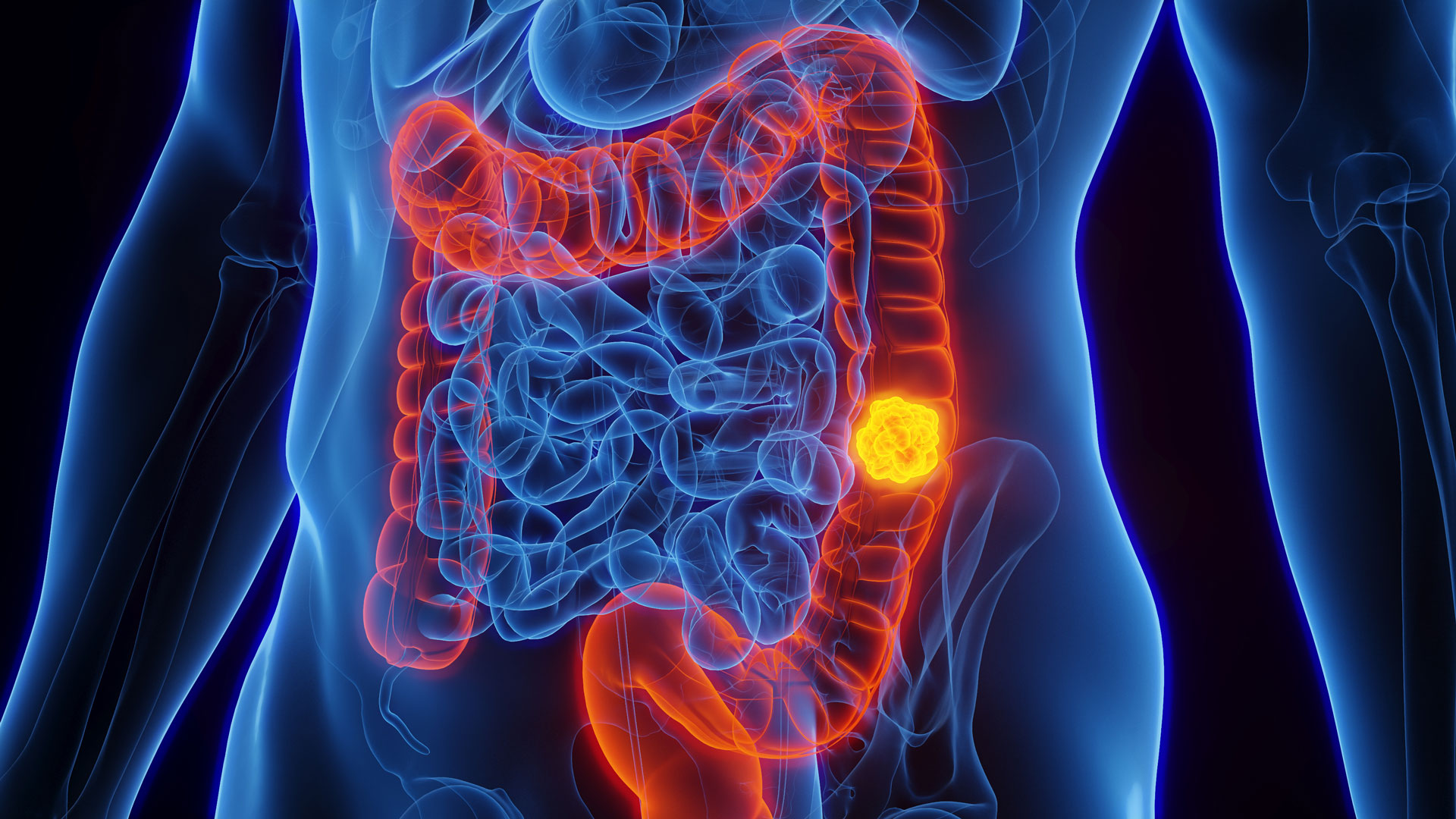Bowel Cancer
With approximately 60,000 new cases per year and a relative 5-year survival rate of 63%, bowel cancer is one of the leading causes of death in Germany. Since early-stage colorectal cancer responds very well to treatment, early detection is especially important.
More than 90% of all colorectal cancers develop from adenomas, which typically undergo malignant transformation over a period of 10-15 years. Due to its often non-specific symptoms, the clinical diagnosis is frequently made at an advanced stage, even though tumour bleeding often begins long before clinical signs appear. Testing for these mostly occult (hidden) bleeds has therefore been established for many years as a screening method for asymptomatic individuals. Early detection through such testing can identify malignant diseases before symptoms emerge.
Laboratory Diagnostics for Bowel Cancer
Since 1 April 2017, a specific immunological test for non-invasive early detection of bowel cancer has been available on the national health insurance scheme for patients aged 50 and older. Statutory health insurance patients between the ages of 50 and 55 are entitled to this test once a year. From the age of 55 onwards, they are eligible for an immunological test for haemoglobin in stool every two years. If the test result is positive, a colonoscopy is conducted for further investigation.
Overview of Possible Stool Markers
- Haemoglobin in stool (Immunological quantitative test – iFOBT):
This antibody-based test targets the globin part of the haemoglobin molecule. Its sensitivity ranges from 38% to 88%, depending on the tumour stage, and specificity is around 91%. - Haemoglobin-Haptoglobin Complex in stool:
Elevated levels may indicate intestinal microbleeding caused by polyps or carcinomas in the colon. - M2-PK (Pyruvate Kinase Isoenzyme Type M2):
All tumour cells studied to date show overexpression of this enzyme. M2-PK testing in stool is independent of occult bleeding, which means that both bleeding and non-bleeding polyps or intestinal tumours can be detected. - Calprotectin:
Calprotectin demonstrates high sensitivity in detecting bleeding and non-bleeding polyps as well as colorectal cancer. It is also a sensitive marker for chronic inflammatory bowel diseases such as Crohn’s disease. - ColoAlert – Genetic Stool Test:
ColoAlert is a genetic test that detects human DNA and KRAS and BRAF gene mutations. It can identify DNA changes that precede tumour development before polyps become visible during endoscopy or symptoms appear. Studies show that compared to occult blood tests, ColoAlert misses 60% fewer colon cancer cases – especially in the early, more treatable stages. - ColoAlert Plus – Genetic Stool Test + iFOBT + Haemoglobin-Haptoglobin Complex:
ColoAlert Plus combines the genetic stool test with the established iFOBT and immunological testing for the haemoglobin-haptoglobin complex.
A positive result in any of the following tests must always be followed up clinically: occult blood (iFOBT), elevated M2-PK or Calprotectin levels, or a positive genetic test.
Further diagnostics in suspected cancer cases: colonoscopy, endoscopic ultrasound, CT, or MRI.

